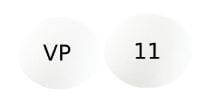Uses
Ethambutol eliminates certain bacteria that cause tuberculosis (TB). It is used with other medicines to treat tuberculosis and to prevent you from giving the infection to others.
This medication is sometimes prescribed for other uses; ask your doctor or pharmacist for more information.
Side Effects Of Ethambutol
Ethambutol may cause side effects. Tell your doctor if any of these symptoms are severe or do not go away:
- loss of appetite
- upset stomach
- vomiting
- numbness and tingling in the hands or feet
If you experience any of the following symptoms, call your doctor immediately:
- blurred vision
- inability to see the colors red and green
- sudden changes in vision
- skin rash
- itching
Warnings & Precautions
Before taking ethambutol:
- tell your doctor and pharmacist if you are allergic to ethambutol or any other drugs.
- tell your doctor and pharmacist what prescription and nonprescription medications you are taking, especially antacids and vitamins. Antacids interfere with ethambutol, making it less effective. Take ethambutol 1 hour before or 2 hours after antacids.
- tell your doctor if you have or have ever had kidney disease, gout, or eye disorders such as cataracts.
- tell your doctor if you are pregnant, plan to become pregnant, or are breast-feeding. If you become pregnant while taking ethambutol, call your doctor.
Ethambutol Dosage
Ethambutol comes as a tablet to take by mouth. It usually is taken once a day in the morning. Follow the directions on your prescription label carefully, and ask your doctor or pharmacist to explain any part you do not understand. Take ethambutol exactly as directed. Do not take more or less of it or take it more often than prescribed by your doctor.
Other
Keep all appointments with your doctor and the laboratory. Your doctor will want to check your response to ethambutol. Blood, kidney, and liver tests may be done also. While you are taking ethambutol, your doctor will want to examine your eyes at least every 3-6 months.
Do not let anyone else take your medication. Ask your pharmacist any questions you have about refilling your prescription.
It is important for you to keep a written list of all of the prescription and nonprescription (over-the-counter) medicines you are taking, as well as any products such as vitamins, minerals, or other dietary supplements. You should bring this list with you each time you visit a doctor or if you are admitted to a hospital. It is also important information to carry with you in case of emergencies.
Source
All information has been provided courtesy of MedLinePlus from the National Library of Medicine and from the FDA.



